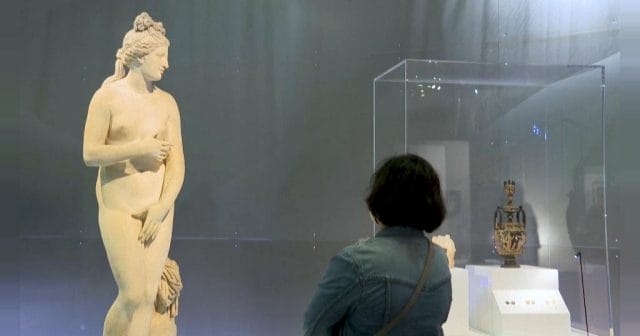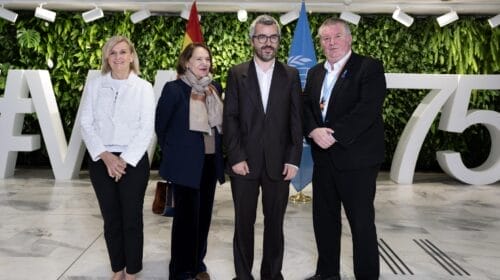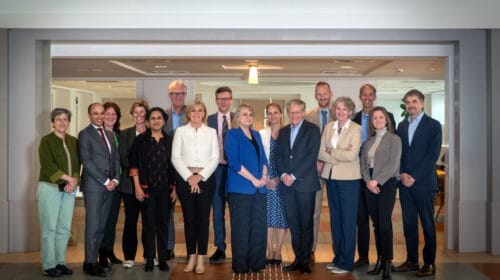Institutional Synergy and Reintegration of Alleged Witches in Nigeria
By Leo Igwe
The Advocacy for Alleged Witches (AfAW) commends local authorities for facilitating the reconciliation and reintegration of an alleged witch in Anambra state in Southern Nigeria. A report from a media agency said that some family members banished a 54-year-old woman, Nneka Uzor, from the Umunankwo community in Ogbaru Local Government Area. In a video shared on social media, Nneka was, on April 30, 2023, accused of spiritual ‘poisoning’ in the community. She was disgraced and banished from her village. In the course of the torture and banishment, the woman collapsed. The state commissioner for women and social welfare, Ify Obinabo, intervened and rescued the accused. She worked with the traditional ruler of Umunankwo, Igwe Igwe Fidelis Nsofor, and other community leaders to reconcile and reintegrate Ms Uzor with her family.
AfAW welcomes this development and the reunification of the accused with the family and community. The Advocacy for Alleged Witches has proposed institutional synergy as key to combating abuses linked to witchcraft beliefs. The successful reintegration of Ms. Uzor illustrates the effectiveness of institutional synergy in the campaign to end these horrific abuses. Witchcraft accusations and witch persecution are more frequent in rural communities where there is a limited presence of the state. In villages, the police posts are few and far apart. These police stations have few officers and lack equipment to enforce the law. It is imperative that the various agencies collaborate.
Traditional chiefs, community heads, and vigilante groups preside over issues in rural communities and ensure order and security. Traditional authorities manage the communities based on customs and traditions, not state laws. They yield to pressures from witchcraft accusers, and witch hunters, and other imputers of occult harm. In many cases, local chiefs allow witch persecution, or the banishment of the accused to avoid being attacked or killed by the village mob.
Following these accusations or abuses linked to the occult, state agencies intervene too little too late because of some political vacuum. Chiefs cannot uphold the rule of law, or defend the accused. The accused, often poor persons, or a widow, as in this case, lack the resources to tackle the accusers and neutralize allegations. So, many alleged witches resign to their fate as determined by witchcraft accusers and witch hunters. But as the case of Ms Uzor has shown, state and traditional institutions can work together to address the problem of witch-hunting, suppress and contain witchcraft accusations and witch persecutions. Traditional rulers and community heads must liaise with state officials and agencies to beat back the tide of witchcraft. Community leaders should not wait until the accused are banished or beaten to death before taking action. They live and operate very close to the scenes. Traditional rulers have a responsibility to protect the accused. They should be vigilant and contact state authorities for help immediately. Witchcraft accusation is a form of death sentence. So, time is of the essence. They should endeavor to contact the police, and other state authorities as soon as they are notified of any case of allegation. State authorities should provide community heads with telephone numbers that they could call. In areas that are notorious for witchcraft accusations, some police units should be placed on a stand-by and ready to intervene at the shortest notice.
AfAW salutes the commissioner for women and social welfare of Anambra state and the traditional ruler of Umunankwo for working together to ensure the safety and successful reintegration of the accused woman. Many alleged witches are languishing in exile. They are unable to return home or go back to their families and communities. In Ghana, they are banished and forced to live in make shift shelters called ‘witch camps’ in the northern region. The Advocacy for Alleged Witches encourages states and traditional rulers to emulate this initiative and work together to reintegrate all alleged witches and end witch-hunting in other parts of the region.
In the days ahead, AfAW will work with traditional leaders and community heads in Anambra to support and empower Ms. Uzor, and help her continue her life.
Leo Igwe directs the Advocacy for Alleged Witches, which aims to end witch-hunting in Africa by 2030




